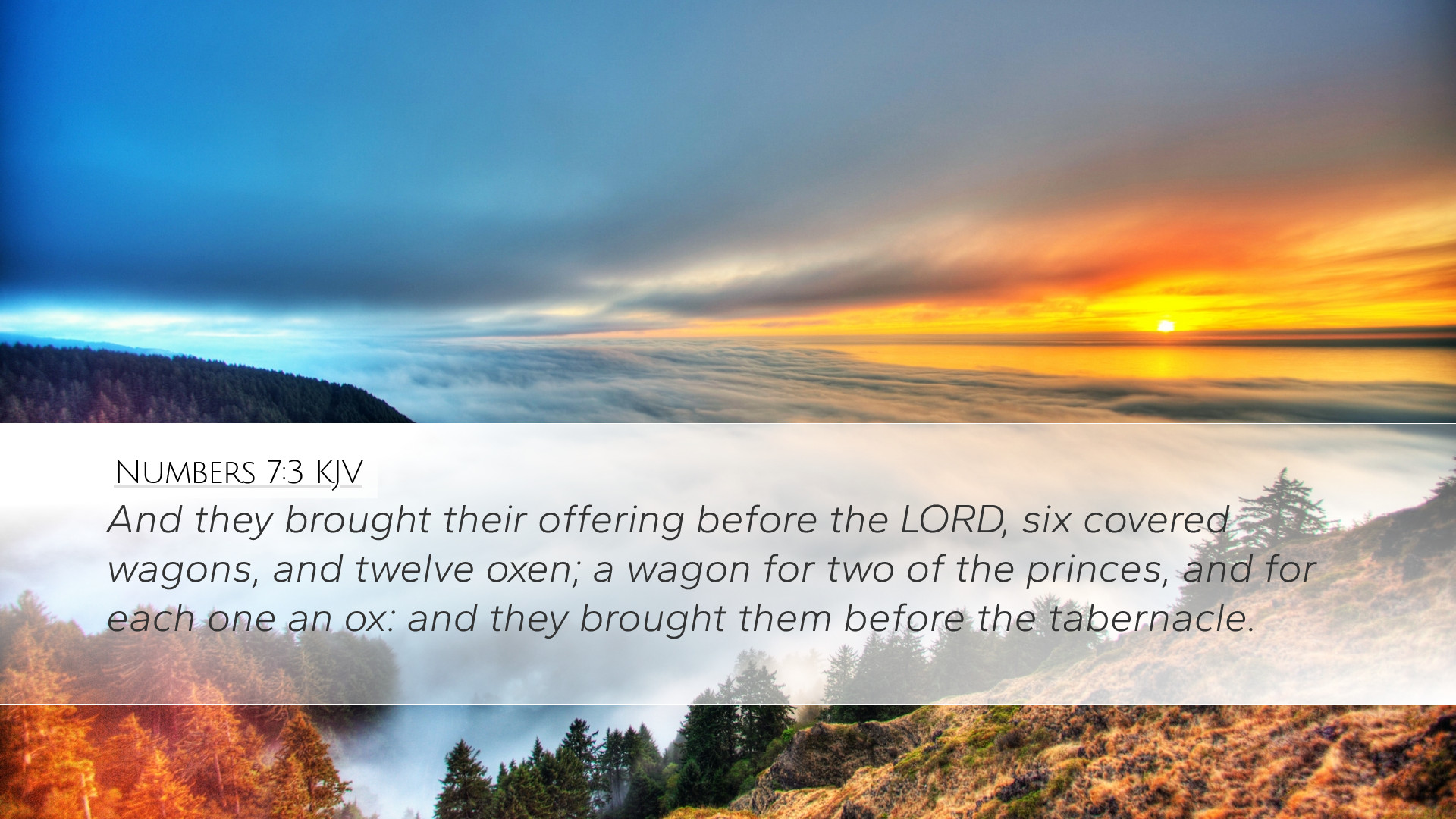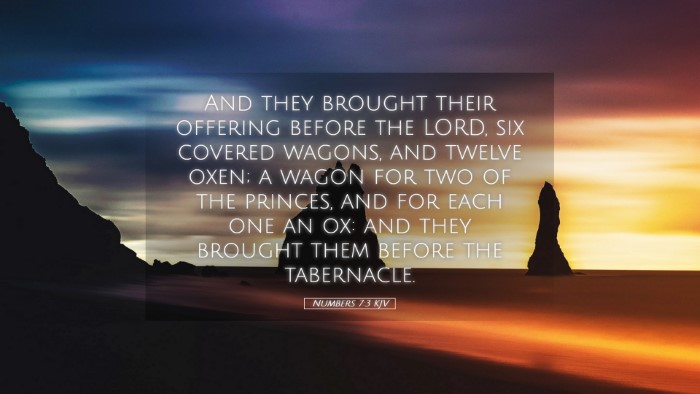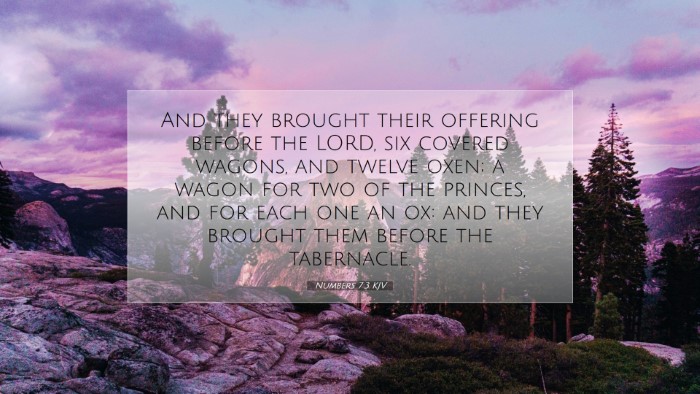Commentary on Numbers 7:3
Verse Context: Numbers 7:3 states, “And they brought their offering before the Lord: six covered wagons and twelve oxen; a wagon for every two of the princes, and for every one an ox: and they brought them before the tabernacle.” This verse occurs in the context of the dedication of the tabernacle, highlighting the gifts brought by the leaders of Israel as they seek favor and guidance from God.
Analysis of the Offering
Matthew Henry points out that the offerings made by the princes are a demonstration of their gratitude and recognition of God’s provision. The six covered wagons and twelve oxen symbolize not just their wealth but also their communal responsibility towards the service of the congregation. The leaders' generosity indicates the importance of collaborative efforts in the worship practices of the Israelites.
Albert Barnes elaborates on the practicality and significance of the gifts. The wagons and oxen are specifically described to serve the needs of the sanctuary and reflect the leaders' understanding that worship requires resources. This act of offering is both an acknowledgment of God’s sovereignty and an investment in the communal worship system.
The Cultural and Theological Implications
This giving reflects a culture where leaders were expected to contribute to the communal good. Adam Clarke notes that this instance signifies an early model of stewardship which set a precedent for future expectations of leaders in spiritual communities. The act of offering is more than a transaction; it embodies a relational theology where the acts of giving are acts of worship.
The Symbolism of the Oxen and Wagons
The oxen represent strength, labor, and service—a fitting offering for the work of the tabernacle. The wagons symbolize mobility and readiness to fulfill God’s commands. Matthew Henry emphasizes that these items illustrate the leaders' commitment to support the tabernacle’s operations, ensuring that the worship of God is accessible and central to the life of the community.
The Leadership Model
This verse also presents a model for leadership within the church and ministry. Albert Barnes comments that the shared nature of the offerings—one wagon for every two princes—underscores the spirit of partnership among leaders. It is an invitation for contemporary church leaders to reflect on their role in the community: to lead by serving, and to see their resources as tools for advancing God’s work.
Lessons for Today
- Gratitude in Giving: The offerings are rooted in thankfulness, encouraging modern believers to give with a heart full of appreciation for God’s blessings.
- Community and Collaboration: Leaders are called to work together for the good of the community, illustrating that teamwork in ministry is crucial for accomplishing the mission of the church.
- Stewardship as Worship: This passage teaches that giving is an integral part of worship. It challenges believers to view their resources as extensions of their faith and devotion.
- Preparedness for Service: Just as the wagons signify readiness for movement, believers today are encouraged to remain prepared to act in service and support of God’s work.
Conclusion
The passage in Numbers 7:3 stands as a testament to the significance of community, gratitude, and leadership in the worship of God. Drawing insights from historical commentaries by Matthew Henry, Albert Barnes, and Adam Clarke, it is evident that this moment was not merely transactional but rather a foundational act that shaped the worship life of the Israelites. For pastors, students, and theologians, this verse encourages a holistic approach to ministry that intertwines gratitude, community collaboration, and active service as essential elements of faithfulness to God’s call.


